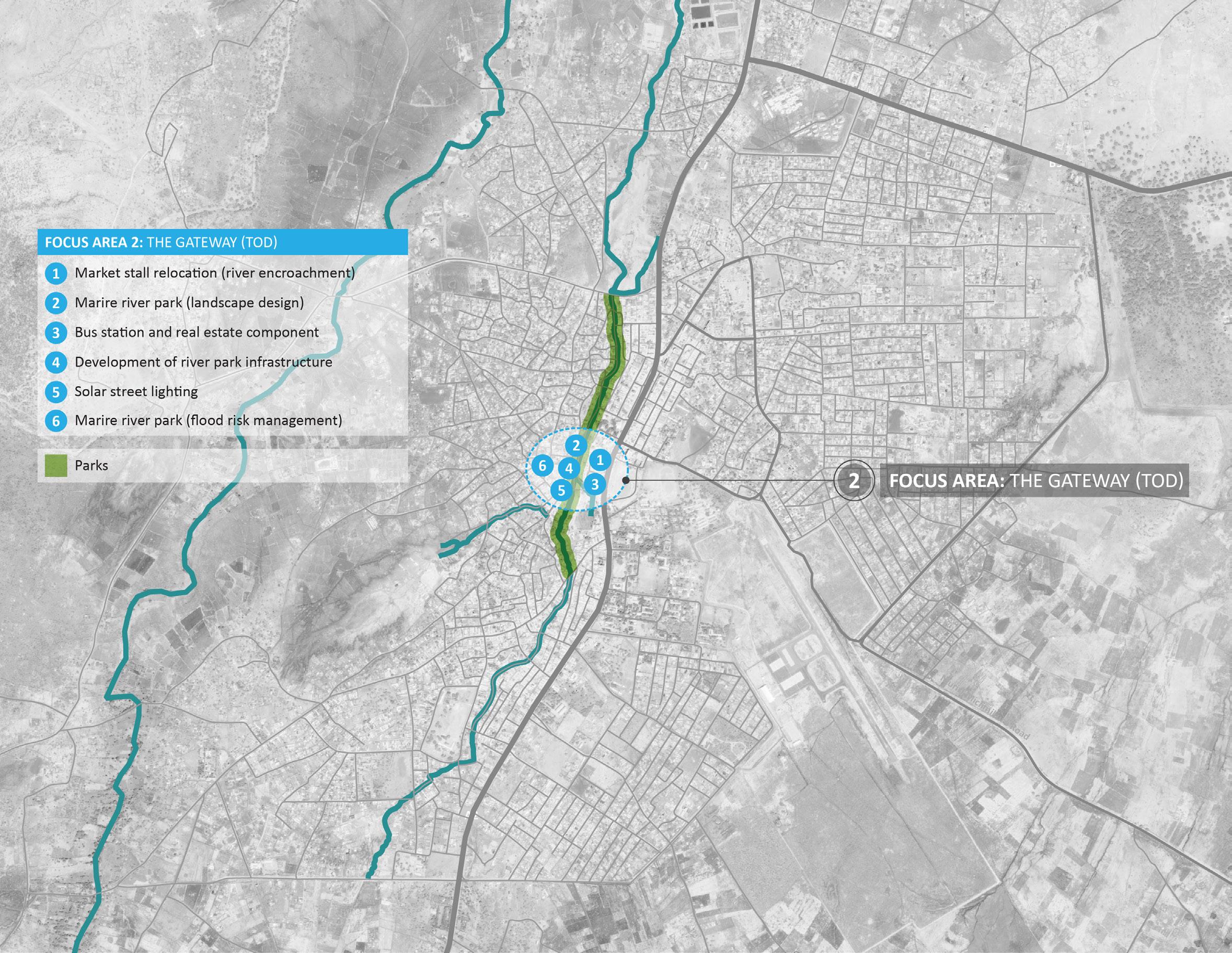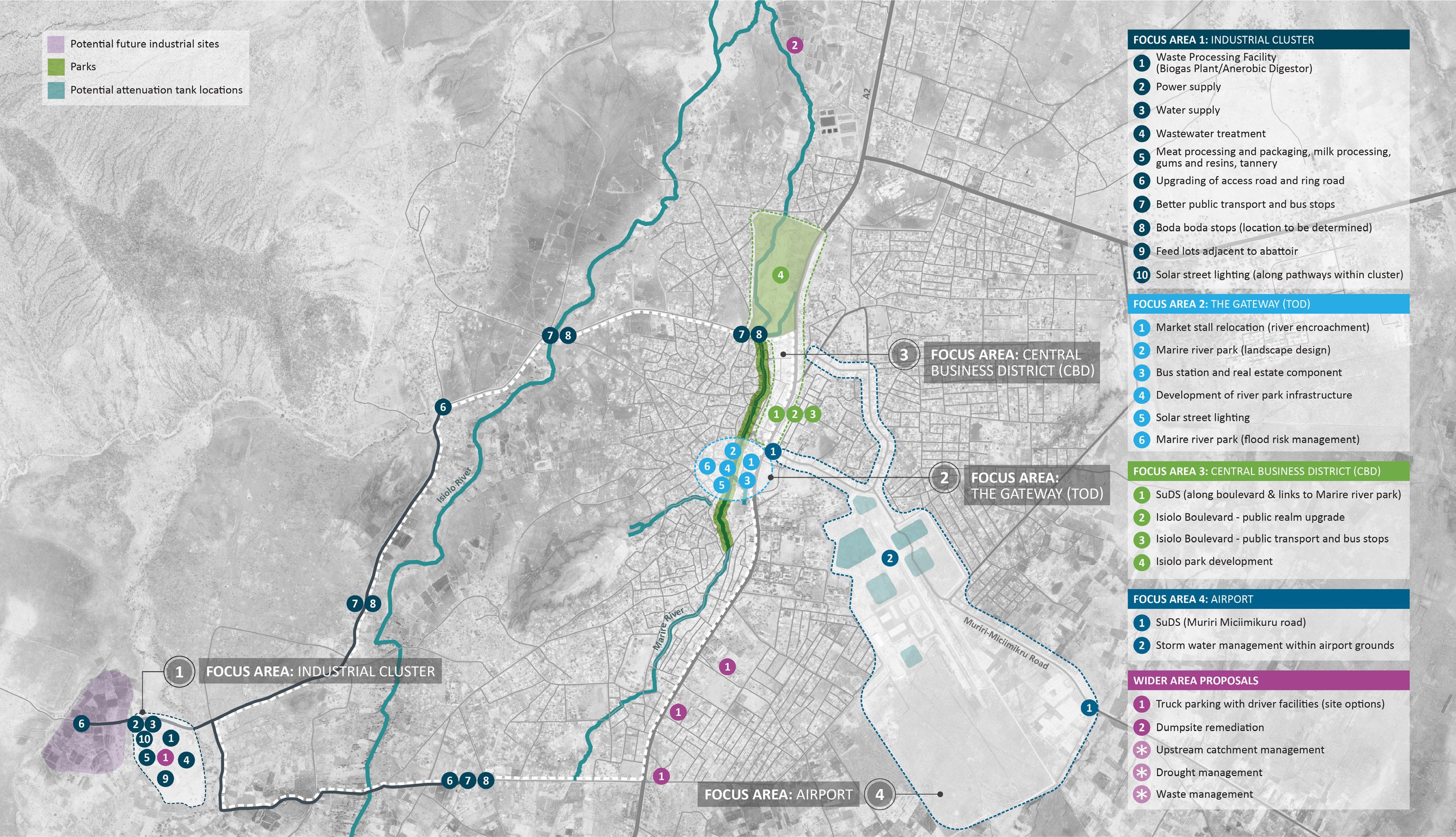IMPLEMENTATION PLAN 118
Regional Fund The Africa Climate Change Fund (ACCF): the ACCF aims to support African countries transition to climate resilient and lowcarbon mode of development, as well as scale-up their access to climate finance. The ACCF serves as a catalyst with a scope broad enough to cover a wide range of climate-resilient and low-carbon activities across all sectors. Priority for funding is given to the following themes; supporting small-scale or pilot adaptation initiatives to build resilience of vulnerable communities; and supporting direct access to climate finance.
change policies while delivering on local adaptation priorities. All five pilot counties have fully institutionalised CCCF within their planning and budgeting processes, committing 1-2% of their development budgets to supporting the implementation of CCCF investments and operationalising structures to govern the fund. This ensures the mechanism is sustainable, with CCCF funding coming from the government exchequer. Post-CCCF, communities demand accountability and strongly influence the choice of investments financed by county development budgets.53
The ACCF gives grants and launches calls for proposals periodically. The Secretariat is housed at the African Development Bank.
The expansion of the CCCF is one of the priorities in the Kenya National Climate Change Action Plan, 2018-2022.
National / County Mechanism
The Isiolo CCCF covered 44 community adaptation investments from the period 2013 to 2016. The projects costed KSh 145 million in total and all together benefited 175,519 people both resident and nonresident of Isiolo and include:
The Kenya County Climate Change Fund (CCCF) Mechanism: Five county governments; Garissa, Isiolo, Kitui, Makueni and Wajir have established County (CCCF) that identify, prioritise and finance investments to reduce climate risk and achieve adaptation priorities. This improves counties’ readiness to access and disburse national and global climate finance to support community-prioritised investments to build climate resilience. The CCCFs are aligned with national priorities set out in Kenya’s National Adaptation Plan (NAP) and enable these county governments to strengthen and reinforce national climate
›
Development of water infrastructure and training in water governance in support of the multiple customary resource access rules and livestock mobility;
›
Construction of a radio station to disseminate weather and development information;
›
resource management institutions - Dedha for improved governance of the rangelands through reviewed rules of access and control including by pastoral groups who regularly visit Isiolo County; ›
Improved disease control through the rehabilitation of a decentralized livestock laboratory for disease surveillance and county-wide vaccination programme;
›
Development of county livestock strategy and resource map with a strong emphasis on building community resilience to climate change.54
4.3. Recommendations for Capacity Building The Municipal managers and other municipality staff will be responsible for the overall management and delivery of the SUED value chain and infrastructure projects. Ensuring that these staff have sufficient capacity and skills will thus be of critical importance to the success of the SUED project. The following recommendations have been made based on interactions with municipality staff to date. ›
Strengthening customary natural
53 https://adaconsortium.org/index.php/component/content/article/95-blogs/320-supporting-adaptation-through-local-level-climate-finance-lessons-from-kenya?Itemid=437 54 https://www.adaconsortium.org/images/downloads/isiolo-ICCFinventory%2017_11_2017.pdf
›
Municipal managers could benefit from capacity building on project management and delivery of large projects (as relevant to the UEP) and the community engagement required;
›
Aside from capacity building of the municipal managers, developing a consolidated project preparation, delivery and monitoring office within the municipality would be beneficial. Municipality staff could be trained to work in this office and the office would function as a “horizontal” capability, providing specialised project management assistance to projects across all sectors. There are potential capacity building synergies to be realised in conjunction with the World Bank’s (KUSP) which is also considering related capacity building activities;
›
As the SUED value chain and climate resilient infrastructure projects involve diverse stakeholder backgrounds and representations, strong governance and strong institutions will be required to effectively manage all stakeholders. Technical assistance and capacity building to support governance and institutional strengthening is thus also recommended;








